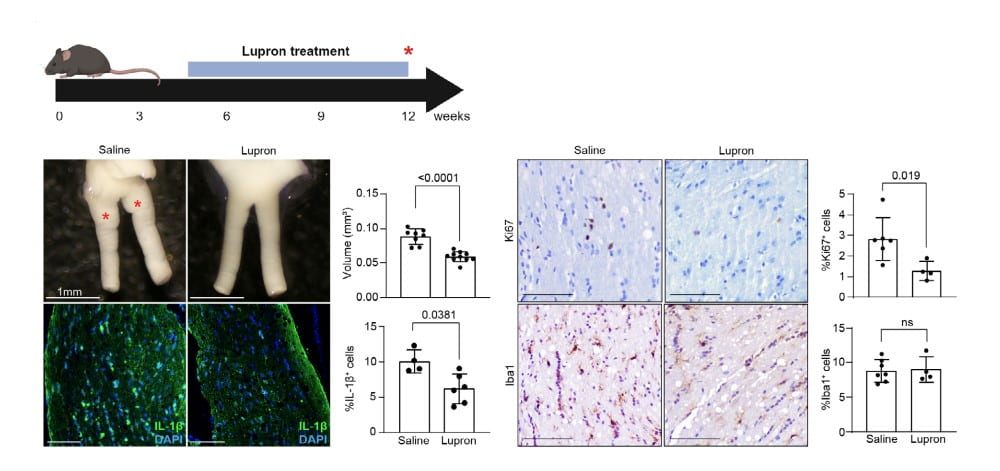The most common brain tumor in children with NF1 is a low-grade glioma affecting the optic pathway, a bundle of nerves that carry vision from the eye to the brain. While many of these tumors do not cause any medical problems, at least one third of children with NF1-optic pathway gliomas (NF1-OPG) will experience some degree of vision loss. Unfortunately, our current chemotherapy treatments are not effective at halting or restoring vision loss.
A team led by Yunshuo (Caroline) Tang MD, PhD, Instructor in the Department of Neurology, has been focusing NF1-OPG vision loss as part of the Vision Restoration Initiative funded by the Gilbert Family Foundation. In her most recent study, she showed that non-cancerous cells in the tumor make a protein (IL1b) that damages the optic nerve. Neutralizing this protein halts vision loss. Moreover, since girls with NF1-OPGs are more likely to lose vision from their tumor, Dr. Tang demonstrated that blocking estrogen, a sex hormone, using a drug commonly used to suppress early onset puberty in children, was also effective. These findings provide the experimental foundations for considering these treatments for preventing vision loss in children with NF1-OPG.
This work was published in Annals of Clinical and Translational Neurology. Click here to read the full article.
